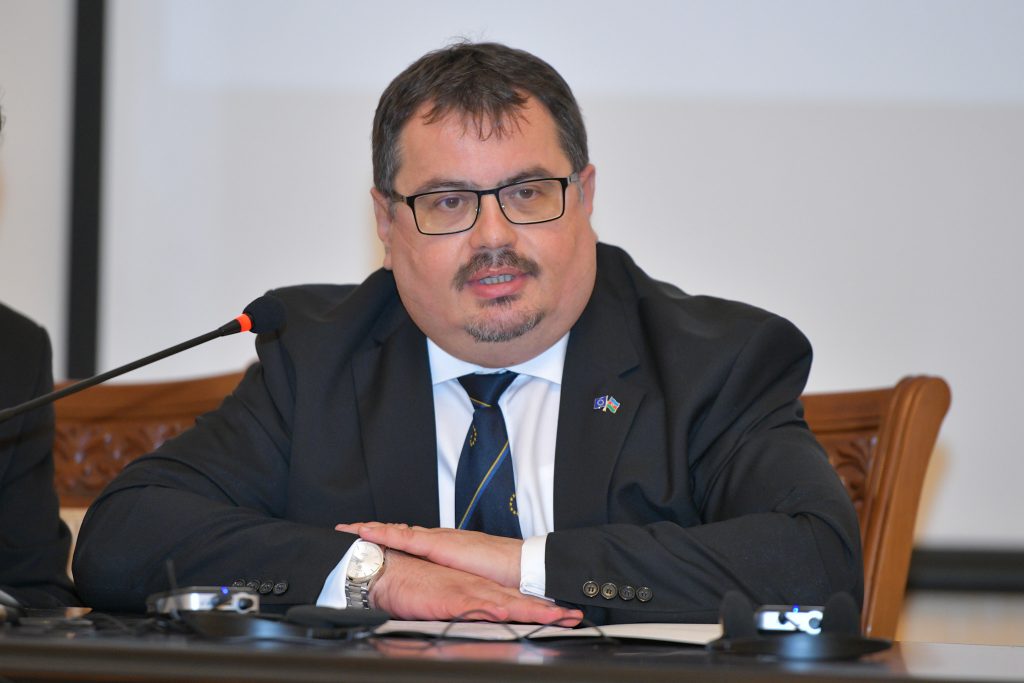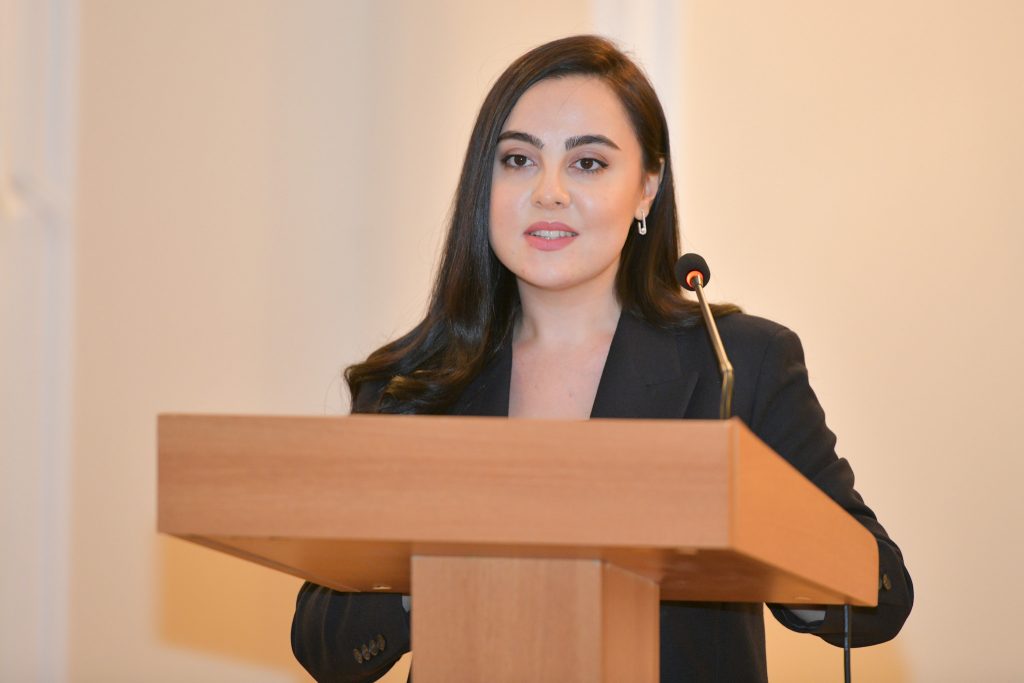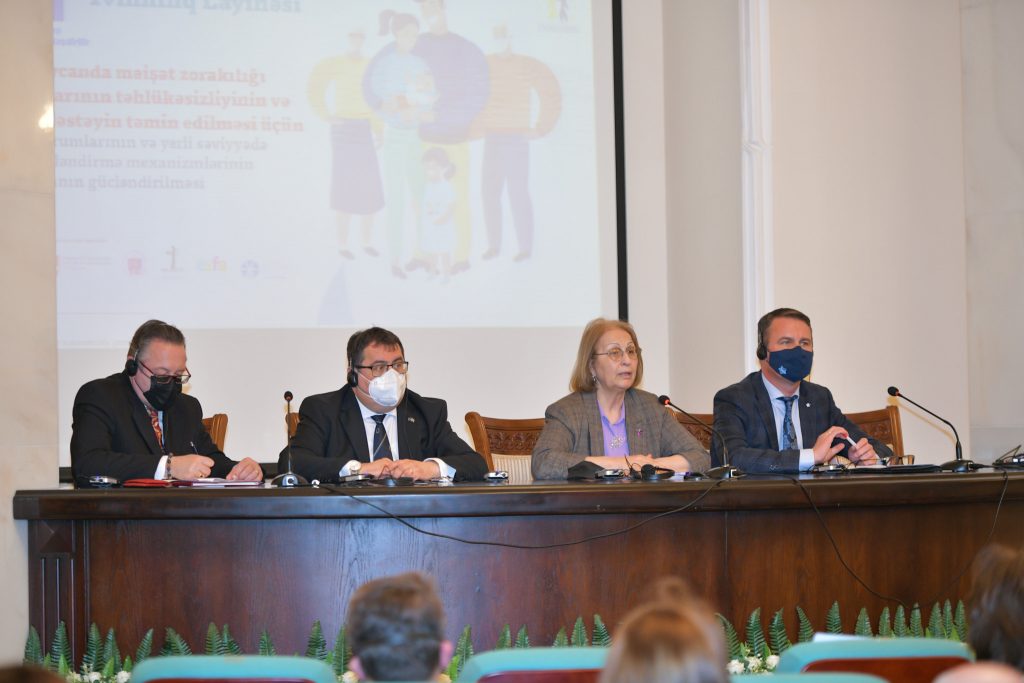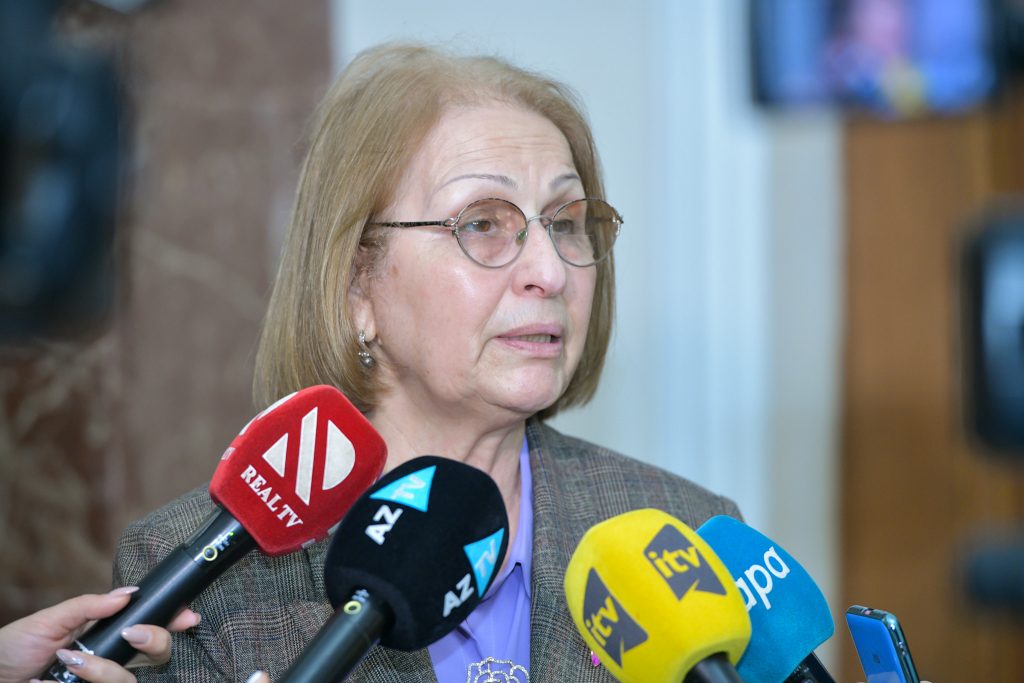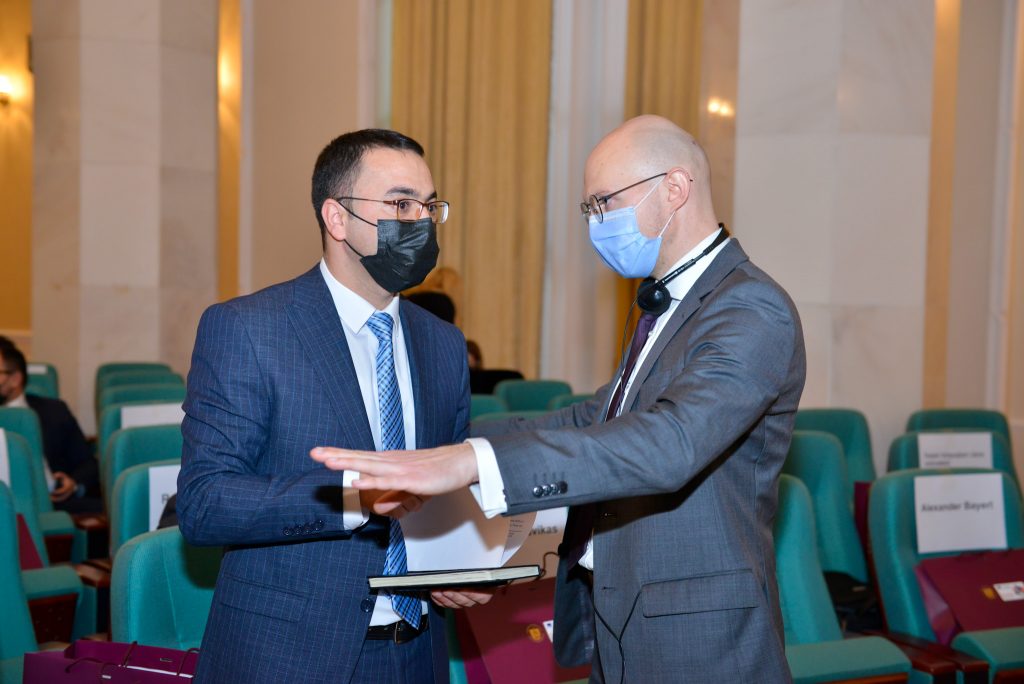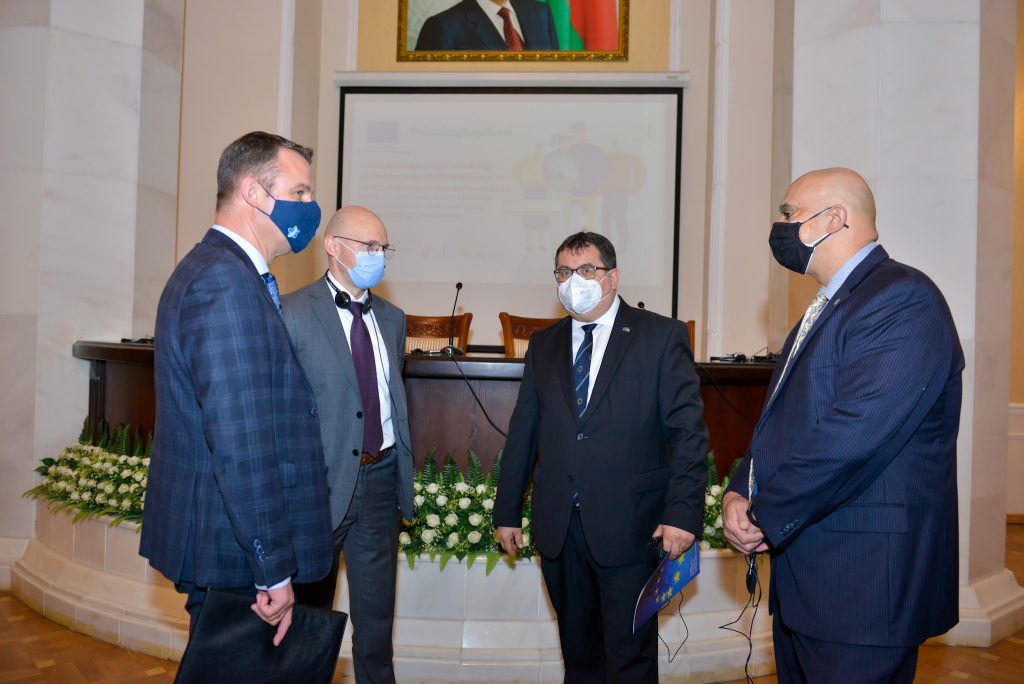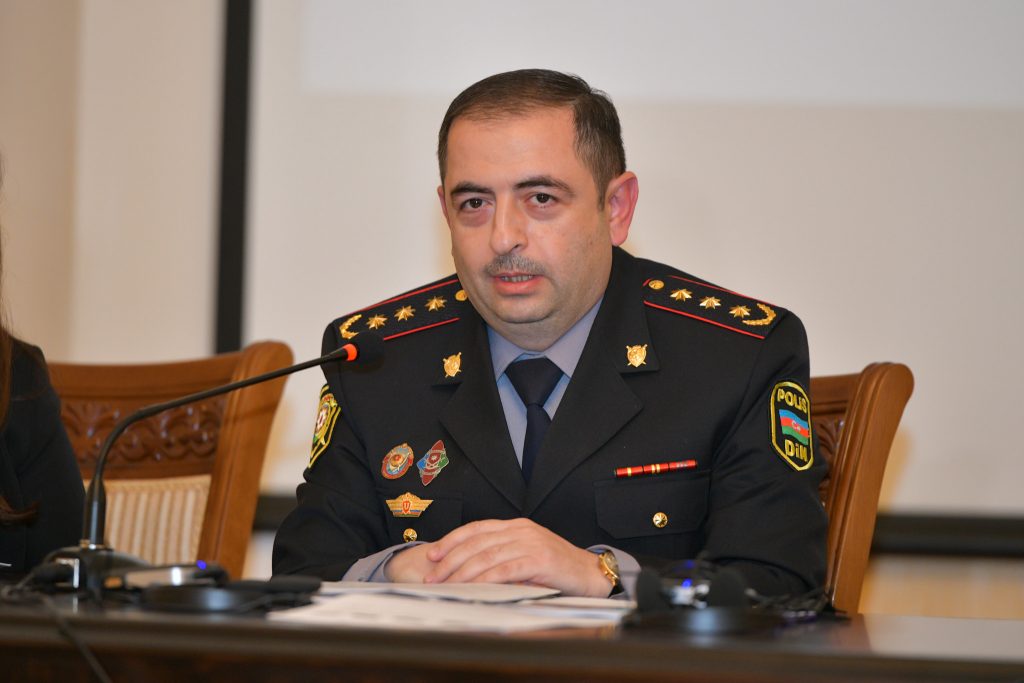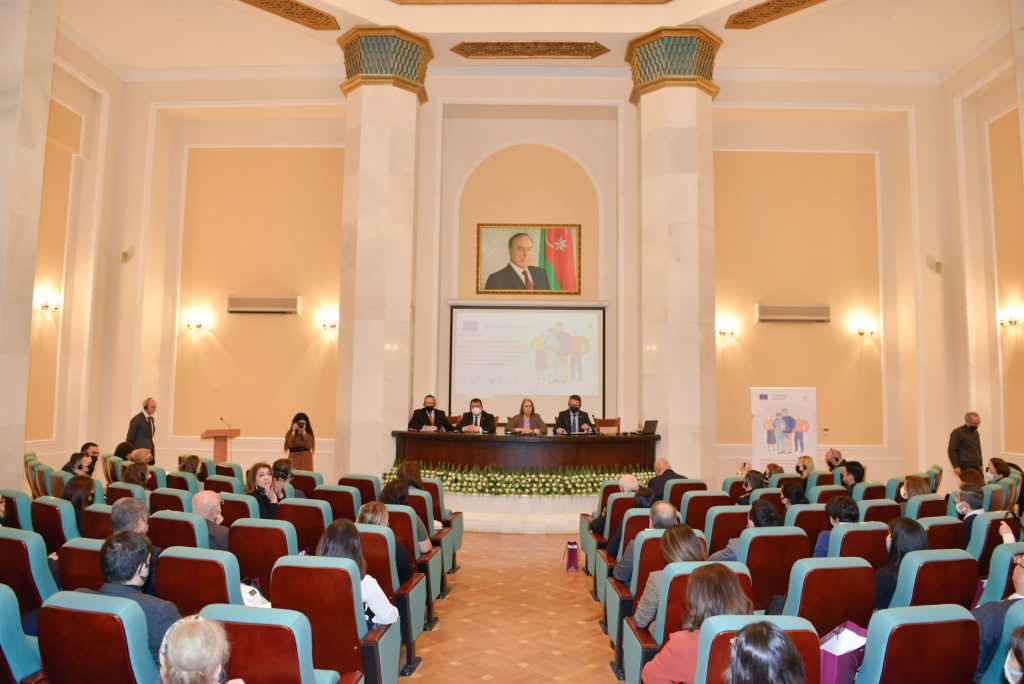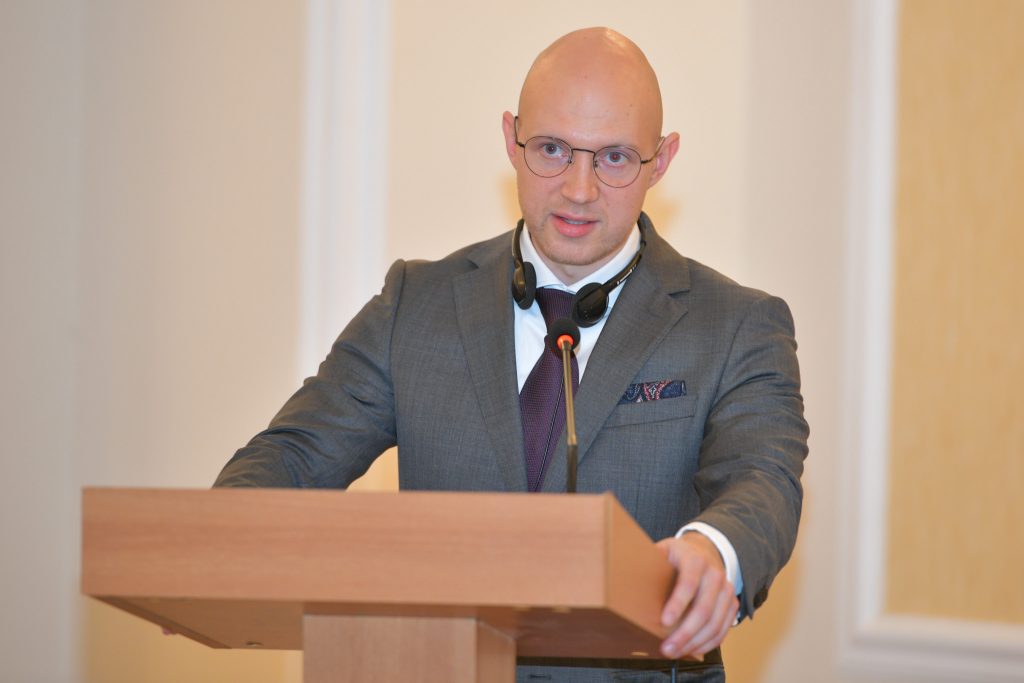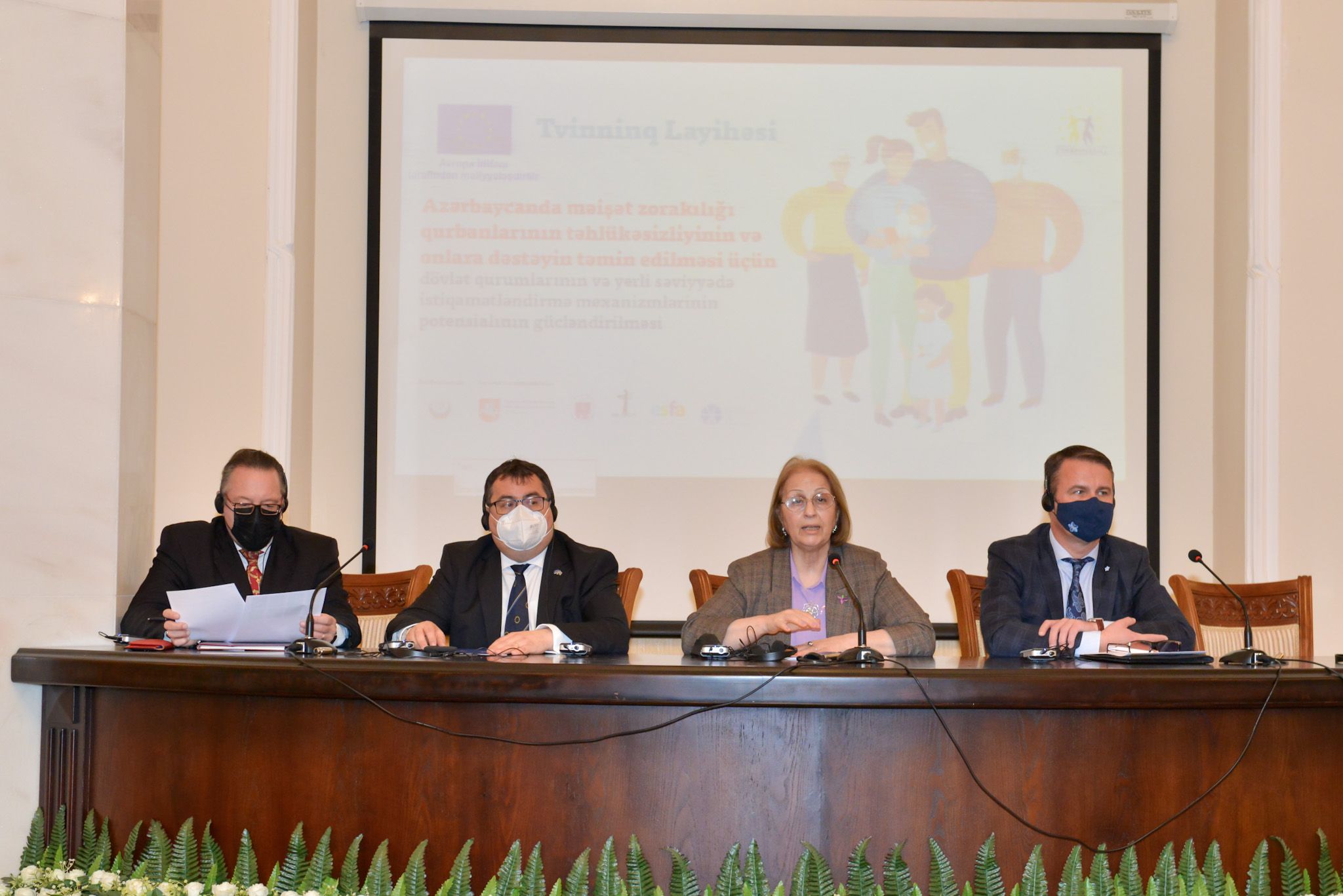
EU-funded Twinning project in the area of domestic violence has been successfully completed
The closing event of the 17-month-long European Union-funded twinning project took place on 12 January. The project aimed to improve legislation, referral mechanisms and services to survivors of domestic violence.
A team of experts from Lithuania and Austria with close cooperation of the State Committee for Family, Women and Children Affairs of the Republic of Azerbaijan developed 6 training programs and conducted training for 680 specialists, including judges, police officers, local executive authority staff, psychologists, teachers, social workers, journalists and NGOs.
Project Leader in Azerbaijan, Deputy Chairperson of State Committee for Family, Women and Children Affairs, Mrs. Sadagat Gahramanova opened the event and praised the joint activities carried out in cooperation within the Twinning project.
“Violence against women happens anywhere, there is no safe place, not even at home. Women are targeted at home as well as in their workplace, in schools and universities, on the street, and increasingly online through cyber violence and hate speech. The EU is committed to preventing, openly rejecting and condemning all acts of violence against women and children and sharing best practices to strengthen safety and support to victims of domestic violence”, said Ambassador of the European Union, Peter Michalko.
Resident Twinning Advisor, Mr. Laurynas Totoraitis summarised that the Twinning project was well-timed and corresponded with the National Action Plan for the Elimination and Combating Domestic Violence of Azerbaijan for 2020-2023. The project focused on several priorities. First of all, enhancing the legal status of Monitoring Groups on Gender-Based Violence and Violence Against Children and legal framework for further criminalization of domestic violence. Developed proposals are intended to increase safety and support to domestic violence survivors. Secondly, the project emphasized increasing capacities of Children and Family Support Centers, development of mechanisms on legal and psychological assistance for domestic violence survivors during pre-trial investigation and court proceedings and rehabilitation programmes of perpetrators. The last priority related to raising journalists’ awareness in order they could more accurately portray domestic violence cases in the mass media and follow internationally recognised ethical standards.
In order to reduce incidents of domestic violence, it is necessary not only to provide assistance to survivors but also to help perpetrators change their habits of violence. International experts together with the State Committee for Family, Women and Children Affairs have tailored an international Intervention Programme for Work with Domestic Violence Perpetrators. This programme is aimed to assist a person to reject violent behavior. It helps the perpetrators to analyze the causes of their own violent behavior, to learn how to recognise their feelings and express them constructively, develop positive attitudes towards partnership, children, managing finances and running a household, and how to learn new skills in dispute resolution.
